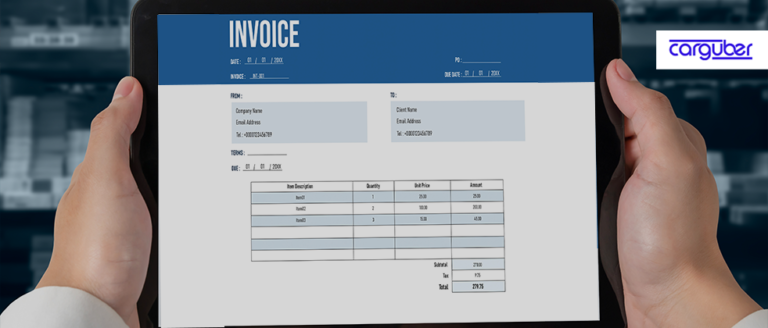Why is the Pickup Address Update API Required in Freight Operations?
When a cargo is booked, every detail regarding dates, timings, contact information, and pickup addresses, must be correct. Furthermore, while most businesses place a lot of emphasis on delivery information, the correctness of the pickup address is equally important. A single mistake in the pickup location can cause a number of problems, including failed pickups, late shipments, resource waste, and dissatisfied customers.
That is why many logistics organizations are turning to automation, notably the Pickup Address Update API, to improve how these details are managed. This article discusses why updating pickup information is important, how the API works, and the operational benefits it provides to your organization.
What is the Pickup Address Update API?
The Pickup Address Update API was created to automate the process of changing a cargo record’s pickup address information in CargoWise or other linked logistics platforms. It enables logistics companies to rapidly update existing shipment records without having to manually search for and rectify them.
The API makes it possible for the system to instantly update when something changes, like the warehouse address, contact information, or pickup location. There is no need to enter additional data, deal with versioning concerns, or manually notify other teams.
Why is It Important to Keep Pickup Details Accurate?
1. Reduces Missed or Failed Pickups
Accurate pickup addresses ensure that the driver arrives at the correct location at the right time. Incorrect or outdated addresses often lead to delays, failed pickups, or detours that waste time and fuel. Automating the address update process helps avoid these disruptions entirely.
2. Keeps Carrier Instructions Clear
Carriers become confused when a pickup location changes and the update isn’t captured instantly. With automated updates, the system provides accurate information to all parties involved in the supply chain, including dispatchers, drivers, and third-party suppliers, rather than relying on updates from other sources.
3. Minimizes Internal Workflow Disruptions
There are dangers associated with manually updating shipment records; information may be entered inaccurately, overlooked entirely, or updated in one system but not in another. By delivering validated, organized data straight into the system, APIs remove these discrepancies, maintaining record alignment and minimizing team confusion.
4. Improves Operational Speed
Operations teams can respond more quickly when the accurate pickup address is immediately updated and shown in real-time. Shipments can be sent out faster, carrier assignments can be arranged with assurance, and stakeholder updates can happen instantly. Hundreds of thousands of shipments every day add up to that kind of efficiency.
How the Pickup Address Update API Works
This API operates through various key parameters like:
- Shipment Reference Number
- Shipment Number
- WayBill Number
- Organization Code and Name
- Full Pickup Address (Street, City, State, Postal Code)
- Contact Information (Email, Phone)
- Nearest Port and Country Code
Once submitted, the API updates the relevant shipment record, ensuring that the new pickup address is available across all connected systems. The update process happens in seconds and eliminates the need for team members to log into multiple systems to make the same change.
Key Benefits of Using the Pickup Address Update API
Real-Time Data Synchronization
Pickup address changes often happen last minute. The API ensures these updates are reflected in the system as soon as they’re confirmed, without waiting for manual input or batch processing. This enables faster response times and real-time decision-making.
Reduced Human Error
Manual updates are prone to typos, omissions, or updates made in one part of the system but forgotten in another. With automation, these risks are minimized, and data flows directly from source to system in a clean, consistent format.
Scalable for High-Volume Operations
For companies managing hundreds or thousands of shipments each day, updating pickup data manually becomes unmanageable. The API enables bulk processing and continuous updates without increasing administrative overhead.
Better Collaboration Across Teams
Since the API updates the system in real-time, everyone working on the shipment, from operations to dispatch to customer service, has access to the same, most recent information. That consistency improves team coordination and ensures aligned communication with customers and carriers.
Improved Accuracy for Reporting and Auditing
When pickup addresses are correctly recorded and maintained, reporting on shipments becomes more reliable. For companies dealing with customs, compliance, or audit requirements, maintaining accurate address records helps fulfill documentation standards without added effort.
When Should You Use This API?
- After a customer updates the pickup location post-booking
- When managing pickups across multiple warehouse facilities
- If there’s a last-minute change in routing or carrier instructions
- To standardize pickup address formatting across different systems
- When handling recurring shipments with variable pickup points
These use cases highlight the flexibility and real-world value the Pickup Address Update API brings to everyday freight management tasks.
Conclusion
Constant manual inspections and last-minute adjustments shouldn’t be necessary to maintain valid pickup address information. Automation has become essential in the fast-paced logistics industry of today. The Pickup Address Update API simplifies a process that, if completed manually, might impede operations and cause costly errors.
By implementing this API, your team may increase overall shipment accuracy, cut down on errors, and save time. Your logistical operations will be significantly impacted by this minor adjustment.
Interested in simplifying your pickup procedures? Let us help you include the Pickup Address Update API in your workflow. To begin, get in touch with CargoWise Support & Helpdesk right now.









